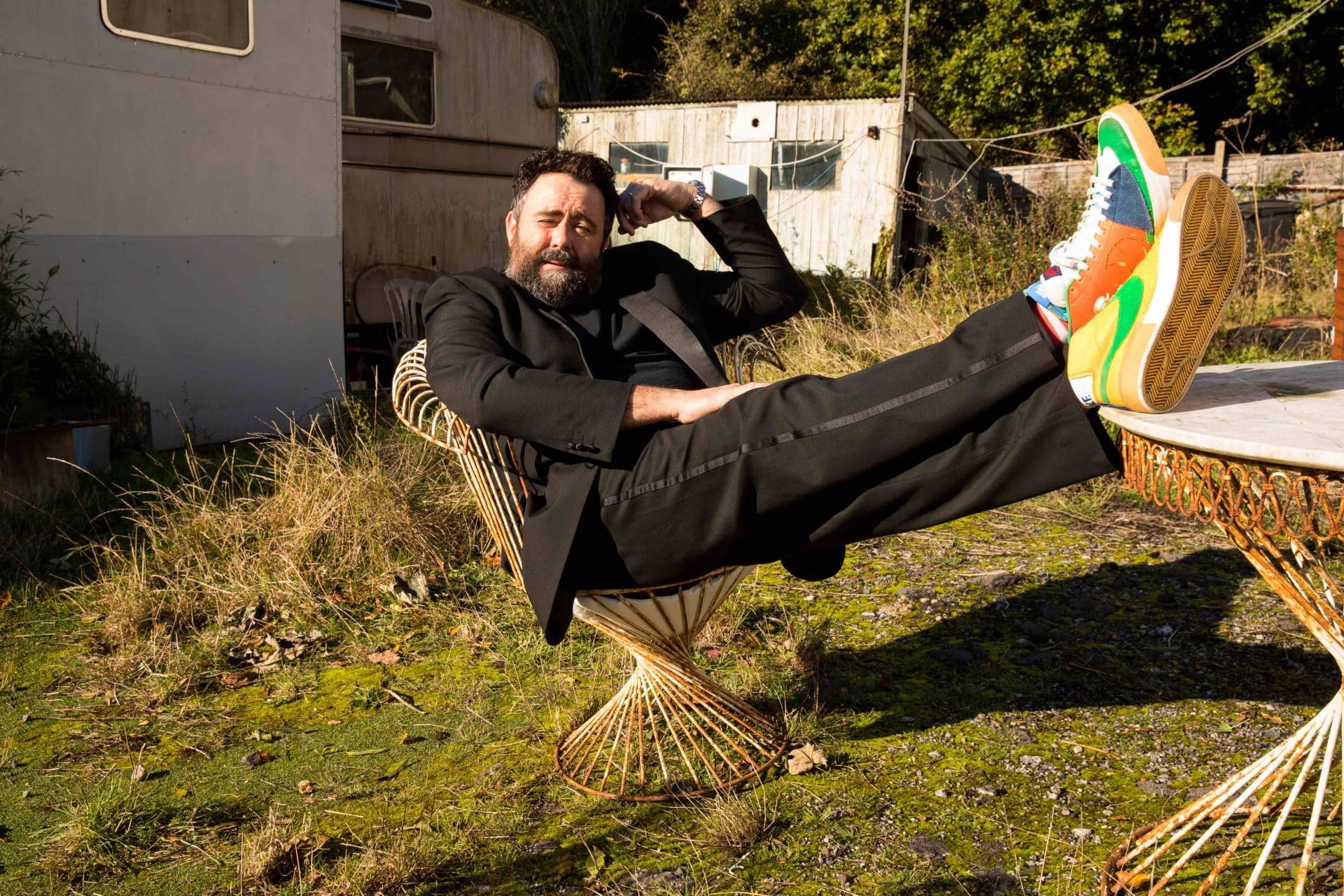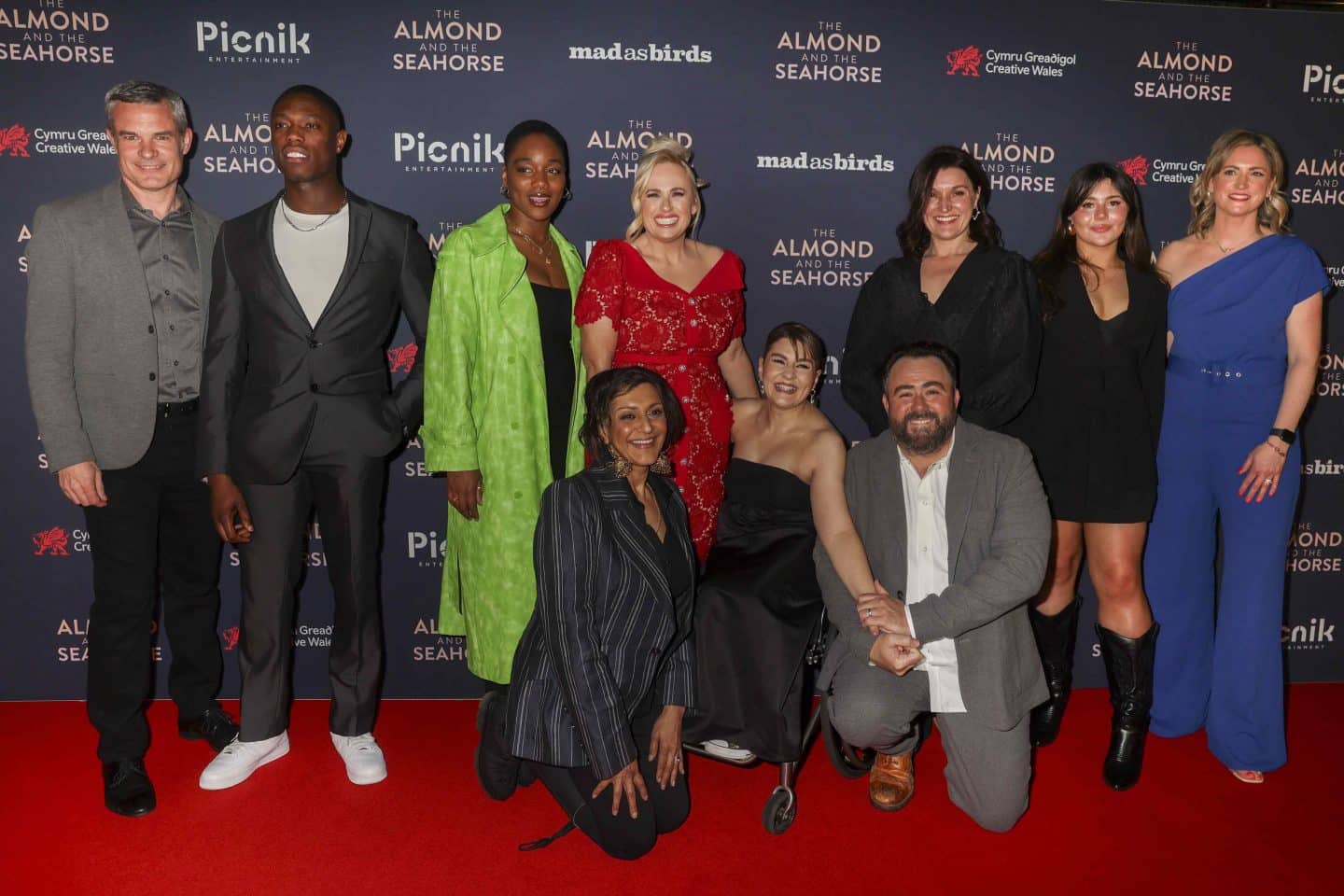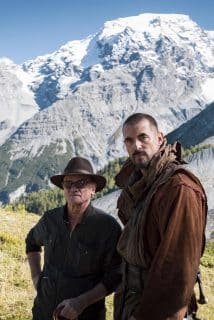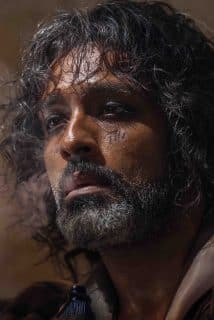Celyn Jones: “I wanted to make Traumatic Brain Injury relatable.”
Culture
Celyn Jones talks to us about his risk-taking, sensitive, funny, humane and moving new film, The Almond and The Seahorse.
Celyn Jones is the kind of creative film-making force who is a writer-director-actor not for reasons of egomaniac control freakery but just because things just happened that way. With him, there’s no Tarantino showboating, or – even worse – some wannabe-Tarantino showboating. No, on the evidence of The Almond and The Seahorse, which Celyn directed, co-wrote and starred in, he has more of a European sensibility, where a straight-up interest in the lives of people in the margins, brings out a desire to tell their stories. It is rare to see a such a sensitively handled piece of cinema as this one.
A lot of the talk around the film has been about one its stars, Rebel Wilson, since this is her first straight acting role. But The Almond and The Seahorse is far from a Rebel Wilson vehicle, as excellent as she is in it. For this is a look at Traunatic Brain Injury (TBI) and uses a brilliant ensemble cast to dramatise and humanise this issue.
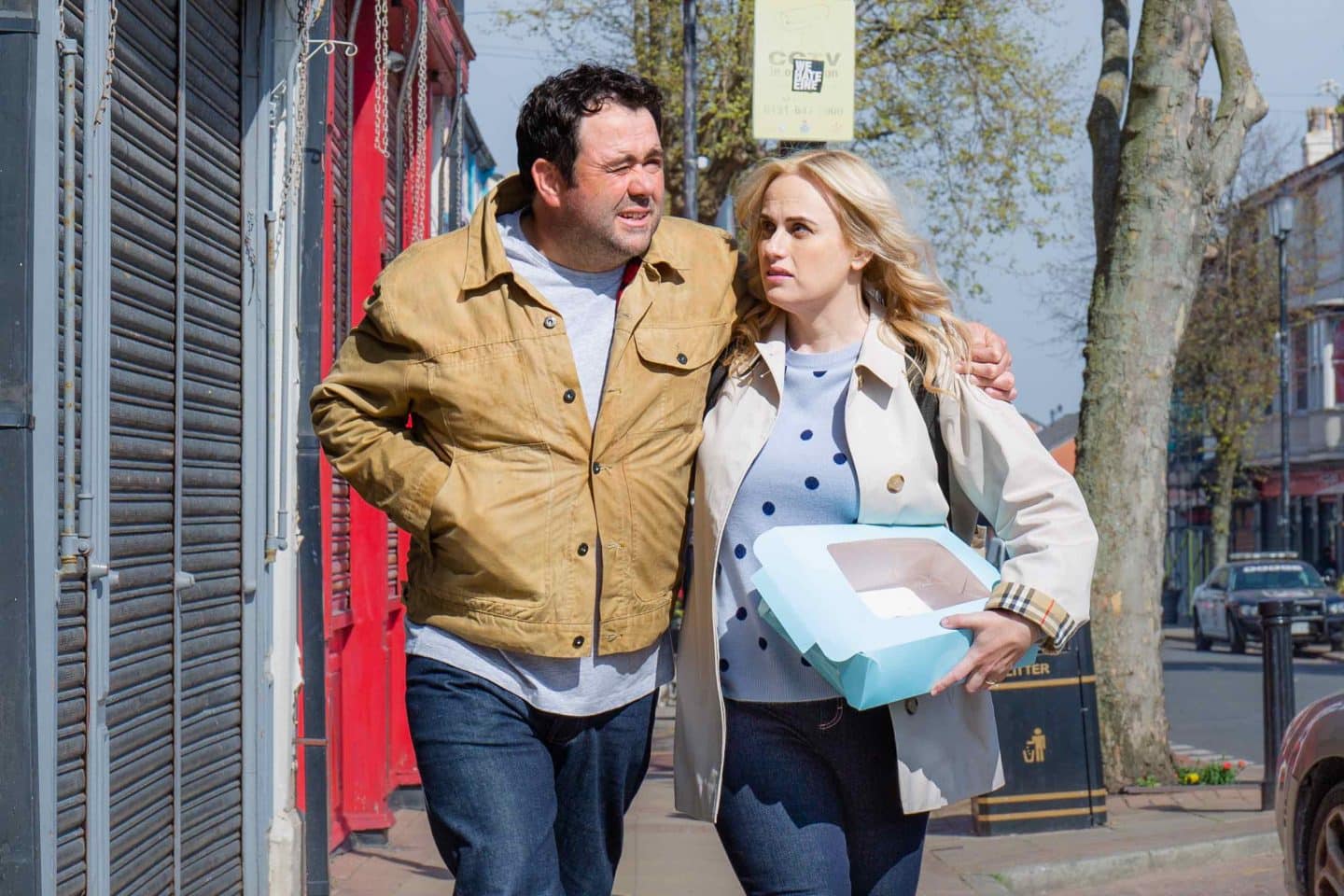
It’s based on an acclaimed play of the same name by his co-writer Kaite O’Reilly, and is powerfully and elegantly brought to the screen by Celyn.
“Kate is very active within disability arts globally and so our lens was always sharply focused on the story we were telling,” Celyn tells me over Zoom, “And the objective was always to show the characters with the condition, as 360 degree human beings that can love and cry and be annoyed and be frustrated and feel vulnerable and feel brave and feel sexy and feel funny. We weren’t there to just rubberneck at these weird conditions and use them as a device to motor a story.”
Indeed, in the film we see Celyn as Joe, try to cope with his condition while being unaware that he has a condition. After his accident he is unable to remember much of his life, and on a daily basis has to be reminded of what to do and when to take his medication by messages left around the house.
But he is also funny, loving, sweet, caring, if sometimes lapsing into frustration and rage. The problem is that he is just different – TBI isn’t merely memory loss it can cause a change in personality, with the brain effectively rewired in some ways – and we see his archaeologist wife Sarah, played by Rebel, coping with this; trying to take care of her husband whilst also not knowing her husband anymore, especially as his memory continues to degrade.
She also, in a movie that artfully cuts between different time periods, has to try to build her own life, and look for new love, as painful as that may be. That might come in the form of Charlotte Gainsbourg as Toni, who is also trying to take care of a partner suffering from brain trauma, Gwen, played by Trine Dyrholm.
“It is as much about the characters who don’t have Traumatic Brain Injury, but they’re the ones that have to that they’re the collateral damage from it,” he says, “Which is Rebel Wilson and Charlotte Gainsbourg’s characters. They’re the ones that have to change. They’re the ones that are changed forever in a different way because they’re the ones that have to forget. They’re the ones that have to say goodbye and move on, which is a really yeah, emotional and hard thing to do.”
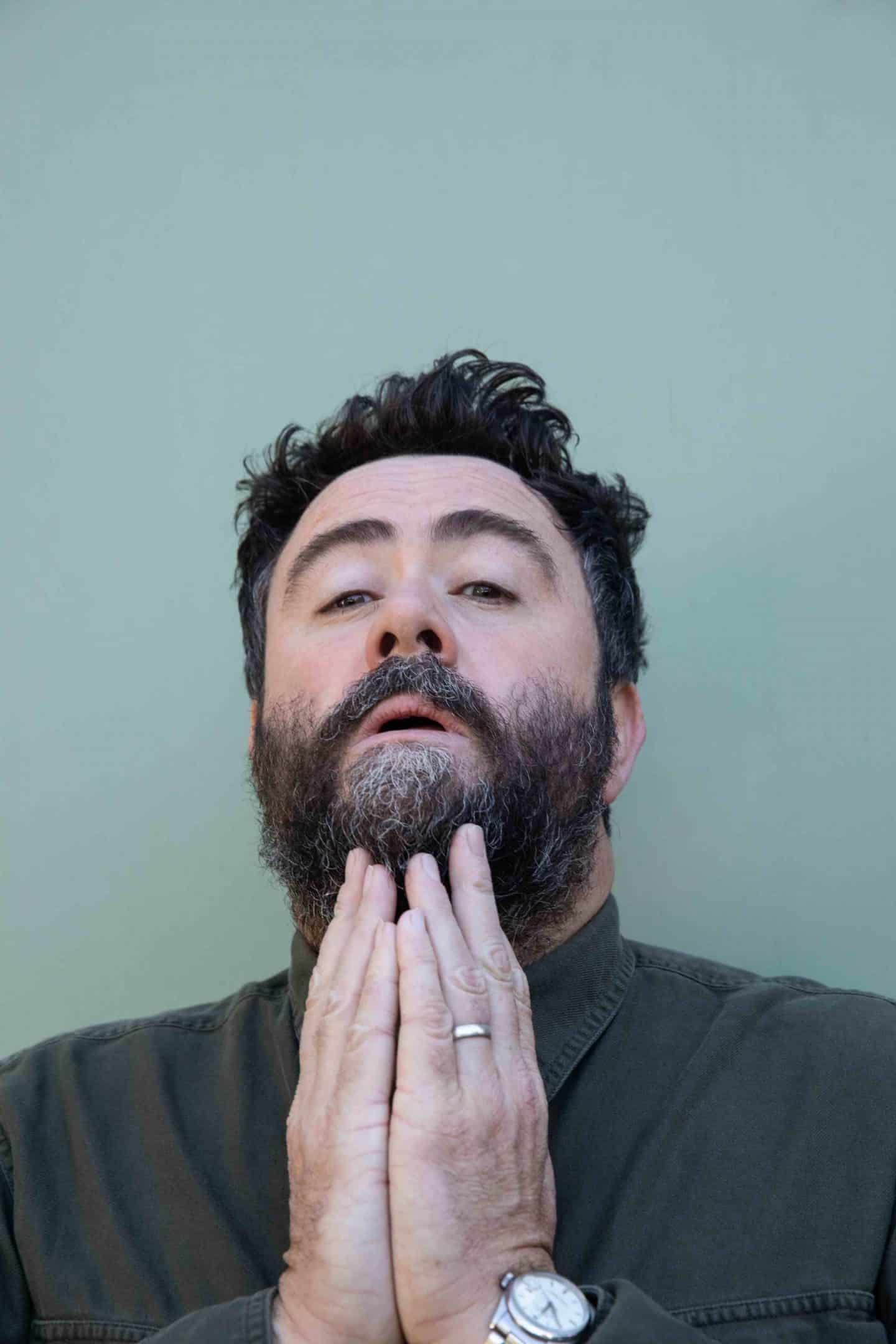
The mix of the sophistication of Gainsbourg and the unfiltered Wilson allow the film to cover a lot of emotional ground, looking at the different ways people can process such situations and, as well as bringing it back to certain human commonalities. I asked Celyn what the advantage was in dramatising this condition as opposed to making a documentary.
“I think it’s such a big subject but yet it is an unknown thing because people don’t discuss it or highlight it,” he says, “In fact, Oliver Sacks called it the silent epidemic, and it affects more people than you imagine. You’d be surprised at the figures. And it’s not necessarily just TBI that people can relate to. It’s also dementia and Alzheimer’s and various things like that.”
“I guess by telling it this way, you can make it digestible and you can have actors who are really sympathetic that you audience want to follow and which they can relate to. By taking this big subject matter of Traumatic Brain Injury and making it relatable, by leaning into a love story, leaning into a relationship drama, leaning into the everyday of it – so the extraordinary ness of the condition, but also the ordinariness of it – I think just makes the film a Trojan horse.”
Indeed, ‘The Almond…’ is one of those films that lingers in the mind way after the closing credits. There’s something in the elliptical style, in the raw performances, and in the moments, that stays with you. Whether its Meera Syal playing against type as a cynical Dr Falmer, or Joe wandering around the house lighting, then forgetting, cigarettes, or Toni and Sarah forming a veritable odd couple underpinned with comfort as much as desire.
“Somebody wrote that the film is neuroscience for beginners, and meant it negatively. But actually, because it has never happened to these people in the film, it is neuroscience for beginners. And sadly, it’s heartbreak for the well initiated.”
Such wilfully obtuse criticism will not stop those who watch the film in good faith getting a lot from it. And as for those who are touched with these issues in any way, well, it is already playing an important role.
“You can hide behind a load of science and maybe I’m just not clever enough to do that, but to me, it’s got to be about the human condition and the emotional resonance and the connection of these characters,” hd says, “Characters trying to survive in a very harsh landscape is a universal tale and something we can all latch on to. We didn’t have to be the well schooled neuroscientists to do that. And we don’t have to be any age to understand the fear of being forgotten or left.”
“The thing that’s been really moving, has been survivors of TBI, saying they were very grateful for the movie. That’s the thing you can’t plan for. People saying that they’ve seen for the first time the condition not being used as a gimmick.”
It helps that Celyn also plays Joe, allowing him to fully expand this idea of fully rounding out the depiction of a person with the condition, and basically put himself on the line. “You just have to commit to the moment. And that character can only be in the moment because he has no future neurologically and his past is way behind him. You’re lost in the moment and he can go from 0 to 60, moments of rage, moments of quiet vulnerability, moments of humour. You have to commit in those moments and I don’t mind committing as an actor. ‘A man’s reach should always exceed their grasp, or what’s a heaven for?’ as Browning said. If you’re gonna take a risk, failure is just around the corner, but hey, so what?”
As for what’s around the corner for Celyn next, well he’s about to do his second film as a director, and the third is already planned. You can expect a lot more from this most thoughtful of film-makers.
“I haven’t told anyone else this yet,” he says conspiratorially when I ask him for final words on The Almond and The Seahorse, “The film is a memory. That’s how it’s constructed.That’s where the emotions are, the way they are.That’s why the reactions the way they are. Sometimes memories are loud. Sometimes memories are quiet. Sometimes memories are playful. I think that’s a good way into this movie. So many people have written to me and said it’s stuck with me, and I think it’s because a it’s a memory about memory essentially.
“That’s my wanky bit of directing stuff anyway!”
The Almond and The Seahorse is out now, find out where to watch it here.
To learn more about Traumatic brain injury, visit Headway.
Follow Celyn on Instagram:
Trending

Join The Book of Man
Sign up to our daily newsletters to join the frontline of the revolution in masculinity.




